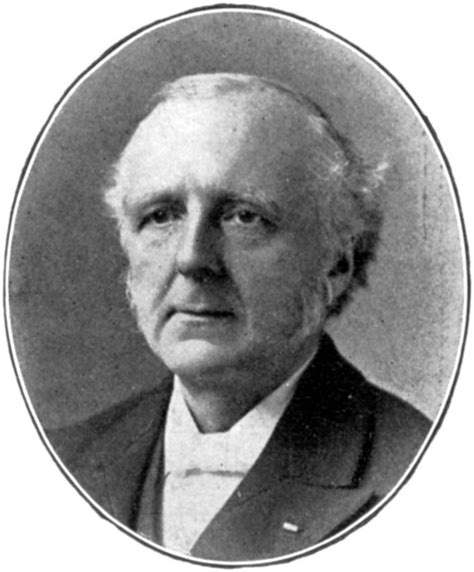A Quote by Alexander MacLaren
As Christ's ministry drew to its close, its severity and its gentleness both increased; its severity to the class from whom it never turned away. Side by side through all His manifestations of Himself, there were the two aspects: "He showed Himself froward " (if I may quote the word) to the self-righteous and the Pharisee; and He bent with more than a woman's tenderness of 'yearning love over the darkness and sinfulness, which in its great darkness dimly knew itself blind, and in its sinfulness stretched out a lame hand of faith, and groped after a Divine deliverer.
Quote Topics
After
Aspects
Away
Bent
Blind
Both
Christ
Class
Close
Darkness
Divine
Drew
Faith
Gentleness
Great
Hand
Himself
His
Increased
Itself
Knew
Lame
Love
May
Ministry
More
Never
Out
Over
Quote
Righteous
Self
Self-Righteous
Severity
Side
Sinfulness
Stretched
Tenderness
Than
Through
Turned
Two
Were
Which
Whom
Woman
Word
Yearning
Related Quotes
This avoidance of the difficult things of Scripture — of sinfulness and hell and God’s notable severity — is idolatrous and cowardly. If a man or a woman who teaches the Scriptures is afraid to explain to you the severity of God, they have betrayed you, and they love their ego more than they love you.
The forgiveness of God is gratuitous liberation from guilt. Paradoxically, the conviction of personal sinfulness becomes the occasion of encounter with the merciful love of the redeeming God. "There will be more rejoicing in heaven over one sinner repenting..." (Luke 15:7). In his brokenness, the repentant prodigal knew an intimacy with his father that his sinless, self-righteous brother would never know.
If an author be supposed to involve his thoughts in voluntary obscurity, and to obstruct, by unnecessary difficulties, a mind eager in the pursuit of truth; if he writes not to make others learned, but to boast the learning which he possesses himself, and wishes to be admired rather than understood, he counteracts the first end of writing, and justly suffers the utmost severity of censure, or the more afflicting severity of neglect.
Some attribute had departed from her, the permanence of which had been essential to keep her a woman. Such is frequently the fate, and such the stern development, of the feminine character and person, when the woman has encountered, and lived through, an experience of peculiar severity. If she be all tenderness, she will die. If she survive, the tenderness will either be crushed out of her, or—and the outward semblance is the same—crushed so deeply into her heart that it can never show itself more.
Self-righteousness is unavoidable. You can either be a self-righteous Pharisee where you think you are better than everyone else or you can be a self-righteous pagan who thinks you are better than the Pharisee. If you are a self-righteous person, I could become very self-righteous thinking that you're self-righteous and you think you're so good but I know you're bad. I know I'm bad so that makes me better than you.
These boys, now, were living as we'd been living then, they were growing up with a rush and their heads bumped abruptly against the low ceiling of their actual possibilities. They were filled with rage. All they really knew were two darknesses, the darkness of their lives, which were now closing in on them, and the darkness of the movies, which had blinded them to that other darkness, and in which they now, vindictively, dreamed, at once more together than they were at any other time, and more alone.
There is more joy in heaven over a converted sinner than over a righteous person standing firm. A leader in battle has more love for a soldier who returns after fleeing, and who valiantly pursues the enemy, than for one who never turned back, but who never acted valiantly either. A farmer has greater love for land which bears fruitfully, after he has cleared it of thorns, than for land which never had thorns but which never yielded a fruitful harvest.
The sinners to whom Jesus directed His messianic ministry were not those who skipped morning devotions or Sunday church. His ministry was to those whom society considered real sinners. They had done nothing to merit salvation. Yet they opened themselves to the gift that was offered them. On the other hand, the self-righteous placed their trust in the works of the Law and closed their hearts to the message of grace.































